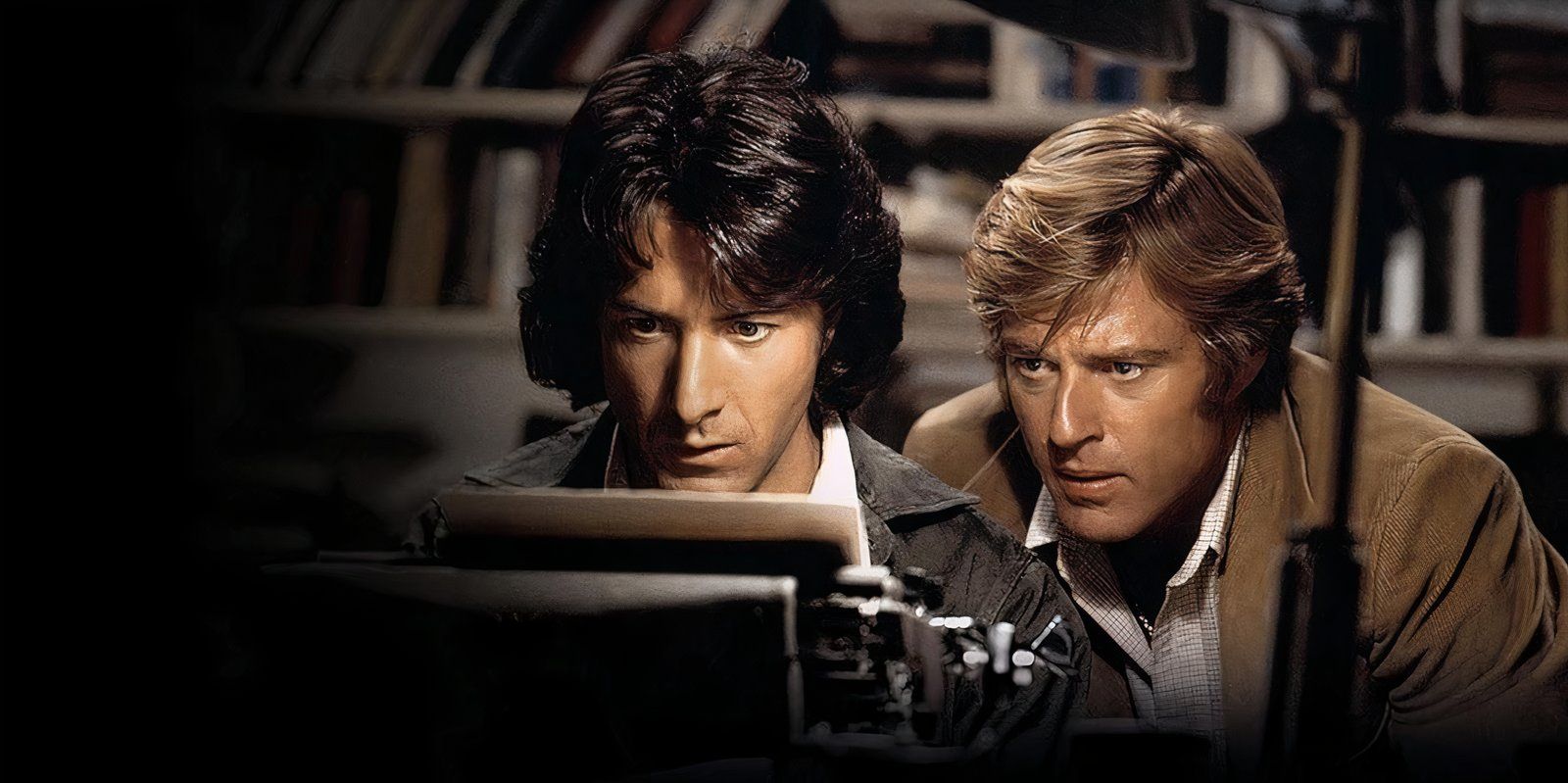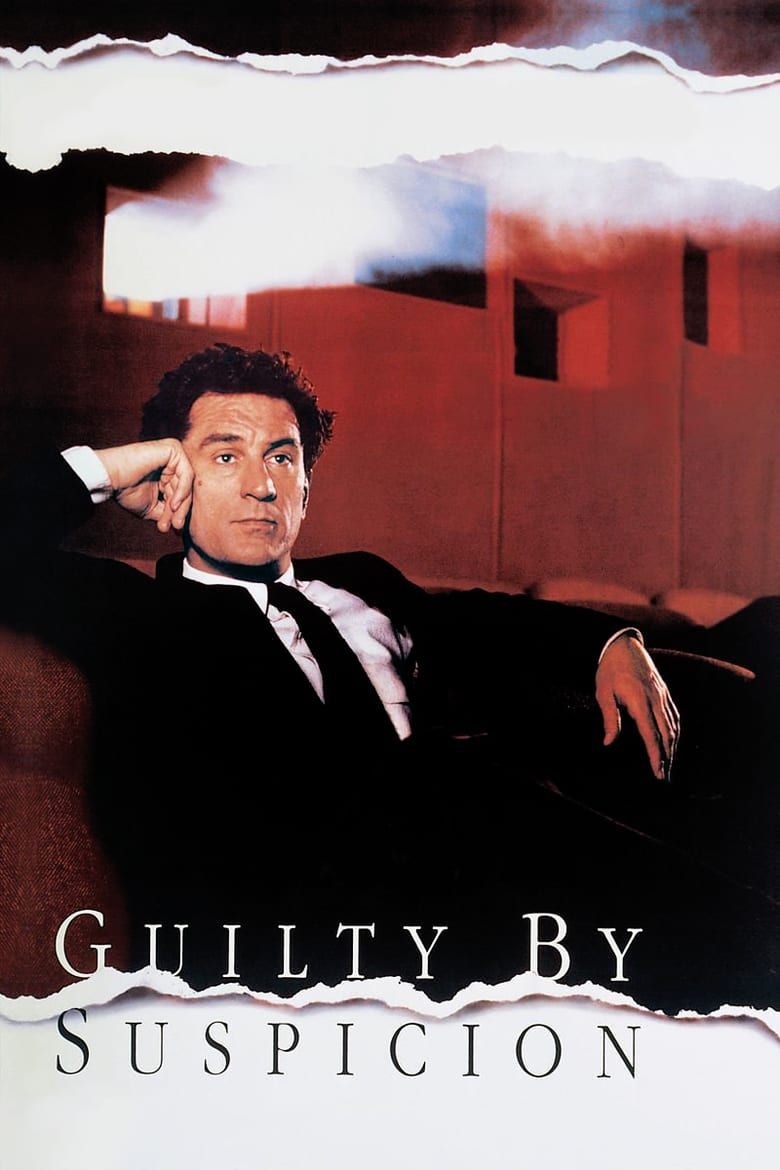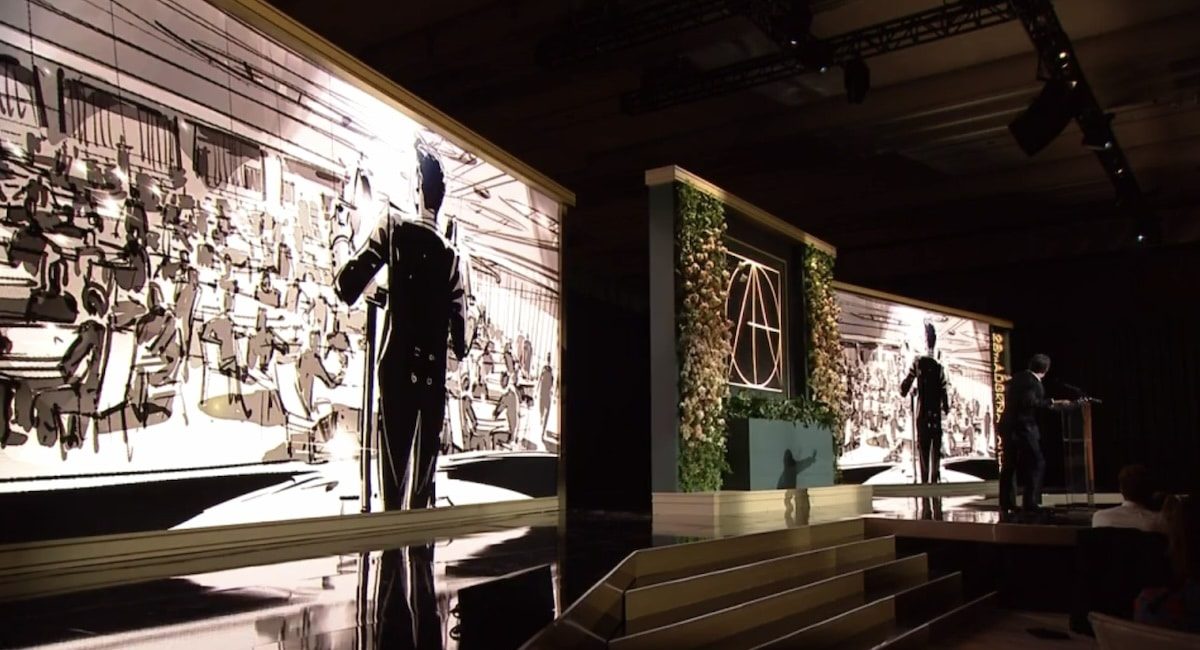Actors like Robert De Niro are part of the reason cinema lasts. They have proven that their star power cannot be dimmed, whether they are in Hollywood blockbusters or small indie projects. De Niro, often considered one of the greatest actors of all time, has given us characters that live rent-free in our minds. Travis Bickle, Vito Corleone, and Jimmy Conway might as well be people we know, but in his celebrated filmography, there’s a criminally underrated performance (ironically, about a man treated like a criminal without due process). In the 1991 thriller Guilty by Suspicion, De Niro embodies David Merrill, a Hollywood director who’s blacklisted from working because he is suspected by the House Un-American Activities Committee (HUAC) of involvement in Communist Party activities. De Niro’s performance about one of America’s darkest times in cinema — when creative decisions lay at the mercy of politicians — is not only spirited but also a searing showcase of De Niro’s enduring brilliance.
‘Guilty By Suspicion’ Is Hollywood’s Broken Mirror Held to Itself
De Niro’s character is based on real-life experiences from Hollywood’s red scare. Set in 1950s Los Angeles, the film centers these stories on David, a successful studio-backed director who returns from an extended break in Europe only to find that his beloved home country — paradoxically the land of the free — and the rules of his trade have changed. His political sympathies of years past come to haunt him. His young family, used to a flashy lifestyle, now face humiliating economic sabotage as the industry turns silent and old friends disappear.
A directorial debut by Irwin Winkler (the producer of Rocky, Raging Bull, and Goodfellas), Guilty by Suspicion boldly captures the moral panic of McCarthyism and the Hollywood blacklist that saw real-life figures including Dalton Trumbo, Ring Lardner Jr., and Edward Dmytryk dragged before HUAC, accused of communist ties, and forced to either “name names” or be exiled from the industry. One of the things that Guilty by Suspicion captures magnificently is the way it lets that dread creep into David. When it could have chosen to lean into the paranoia of The Parallax View, it doesn’t. It instead builds on the spirit of The Front, which also tackles the blacklist era but elevates it with dark satire and sharp edge. This is effective because it internalizes and personalizes the terror of its setting. Add that to the film’s melancholic tone, and it delivers its message while still offering room for the audience to make their own judgment. But our David is more than just the individual this dark part of Hollywood’s history experienced. He is symbolic of Hollywood itself. He’s cornered with little independence. He’s hijacked with no creative liberties and at the mercy of politicians.

Related
The 10 Best Movies About American Politics, Ranked
Mr. Film Goes to Washington.
Robert De Niro’s Quiet Devastation Is the Heart of ‘Guilty by Suspicion’
De Niro shows us his range by playing a character far removed from his usual fire and fury. David is a man trying to keep his soul intact while the world around him crumbles. He is by no means the man of the moment that films like Taxi Driver afford De Niro, despite sharing similar devastating circumstances. In Guilty by Suspicion, he becomes whatever HUAC decides he is. David drowns as he sinks an inch deeper scene by scene. As a husband and a father, he’s unable to provide for his family, and his estranged wife, Ruth Merrill (Annette Bening), has to find alternatives. But even then, she is plunged alongside him as a communist, meaning even she can’t secure employment. As a film director, studios distance themselves from him, and his collaborators turn away. His choices and those of his Hollywood associates are stark: he has the option of staying faithful to his ideals or losing his job.
But De Niro doesn’t play David with the blind heroism we see in movies like Norma Rae. It’s as if David knows he’s already lost something essential, and the rest of the film is just about trying to preserve whatever’s left. It’s an oddly refreshing take where De Niro is the everyman, the compromised, and the confused. But despite being caught in the crossfire, he refuses to bend his ideals to a group of power-hungry people in a committee he has no respect for. Still, he inspires by somehow speaking truth to power through his actions. His friend, Bunny (George Wendt), who asks to use his name to save himself, later finds the courage to also face the committee without naming names. One of the most revealing scenes in the film is David’s dialogue with a blacklisted director (a cameo by Martin Scorsese). It speaks a lot about what Hollywood potentially lost during this era. Scorsese’s character decides to leave the country, realizing he’ll never work again — let alone finish editing his current project, which reflects on just how many creative projects the cinema world lost.
The film’s supporting cast is equally stellar. Annette Bening’s performance as David’s estranged wife brings grace and steel to a character trying to make sense of her husband’s unraveling world. George Wendt is heartbreakingly human as a friend whose fate is far more tragic than the worst of what a courtroom verdict can deliver. Guilty by Suspicion may not have roared its way into De Niro’s hall of fame performances, but it should be on that list. It’s a film about fear, conscience, and the cost of integrity that asks us to sit in discomfort. That alone makes it rare, especially for a Hollywood movie about Hollywood. It’s a sobering picture that, in retrospect, demands that we stay vigilant of the liberties we enjoy, because what we consider normal now can collapse in a huff. And we may have to deal with just how easily people betray their beliefs when the walls close in.

Guilty by Suspicion
- Release Date
-
March 15, 1991
- Runtime
-
100 minutes
- Director
-
Irwin Winkler
- Producers
-
Arnon Milchan








:max_bytes(150000):strip_icc():focal(742x275:744x277)/taylor-swift-travis-kelce-timeline-092523-tout-669c64f9a1c0492ab5c8853b508a9996.jpg)









